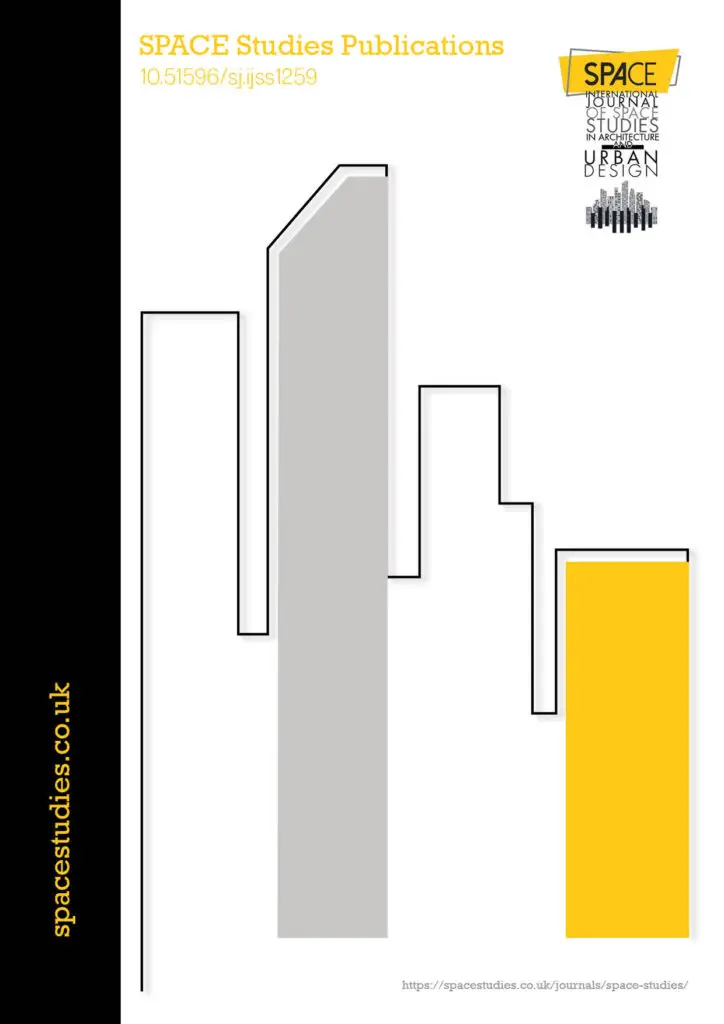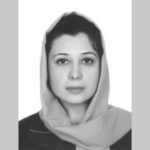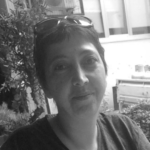
B.A. Fajer Fareed Almeamari
University of Bahrain, College of Engineering, Department of Architecture and Interior Design, BahrainPeople spend about 70-80% of their time indoors. When it comes to employees who averagely start working from the age of 21 until the age of retirement, 60; more or less. Almost 8 to 9 hours per day is the average of working hours. According to Bahrain’s labour market regulatory authority, that makes it 40 to 45 hours per week (5 days of work). Thus, it exerts a significant impact upon the lives of a great number of people. Today the power that we must unleash is the power of innovation. Human beings, their ideas, inventions, dreams, and connections, are the capital of the future. Because where great minds go today, great things will happen tomorrow. “Micro smart district” is the point of the research that aims to introduce design guidelines for the smart workplace in headquarters’ buildings and create intimates and intelligent ways in a comfortable environment.
£35.00 per Month.
Student priced discounts on conference registrations, SPACE shop and e-journals. Access to members only areas on the website. Proof of student eligibility required.
Access to Journal subscription.
References
Ahmadpoor Samani, S., Zaleha Abdul Rasid, S., & Sofian, S. (2017). The Effect of Open-Plan Workspaces on Behavior and Performance Among Malaysian Creative Workers. Global Business and Organizational Excellence, 36(3), 42–52. https://doi.org/10.1002/joe.21779
Cristea, A. (2016). the creative workspace. In Revista Brasileira de Ergonomia (Vol. 9, Issue 2). https://doi.org/10.5151/cidi2017-060
Dijk, J. van. (1969). Creating Creativity*. The Journal of Creative Behavior, 3(3), 172–177. https://doi.org/10.1002/j.2162-6057.1969.tb00125.x
Evans, G. W., & McCoy, J. M. (1998). When buildings don’t work: The role of architecture in human health. Journal of Environmental Psychology, 18(1), 85–94. https://doi.org/10.1006/jevp.1998.0089
Gilbert, V., Kiss, S., Nagy, G., & O’Neill, M. J. (2015). Workplace Design for Well-being. 7. http://media.haworth.com/asset/82854/WorkplaceDesignTipsforWell-being.pdf
Gogoleva, A., & Balabanova, E. (2016). Determinants of Employee Innovative Behavior: Do Foreign and Domestic Companies in Russia Differ? SSRN Electronic Journal. https://doi.org/10.2139/ssrn.2876611
Jadhav, N. Y. (2016). Green and Smart buildings. Nanyang Technological University.
Jones, R. (2018). Daylight in the Workplace – Are we Getting Enough? https://businessnewswales.com/daylight-workplace-getting-enough-2/
Labour market regulatory authority. (2015). Working hours and rest periods. Labour Market Regulatory Authority. http://lmra.bh/portal/en/page/show/280
Li, X., & Zheng, Y. (2014). The Influential Factors of Employees’ Innovative Behavior and the Management Advices. Journal of Service Science and Management, 07(06), 446–450. https://doi.org/10.4236/jssm.2014.76042
Maceda, C. (2016). Low salary: Top cause of stress for workers in UAE, other Mena countries | Business – Gulf News. https://gulfnews.com/business/low-salary-top-cause-of-stress-for-workers-in-uae-other-mena-countries-1.1898394
Puac, S. (2020). 15 Alarming Workplace Stress Statistics & Facts for 2020 – HealthCareers. https://healthcareers.co/workplace-stress-statistics/
Rashid, M., Wineman, J., & Zimring, C. (2009). Space, behaviour, and environmental perception in open-plan offices: A prospective study. Environment and Planning B: Planning and Design, 36(3), 432–449. https://doi.org/10.1068/b33034
Wagner, A., & Nordstrom, A. (2019). Corporate Partners Program Open Concept Office : Good for Business ? 0–14.
Wagner, J., & Watch, D. (2017). Innovation Spaces: The New Design of Work. In The Anne T. and Robert M. Bass Initiative on Innovation and Placemaking, Brookings Institution (Issue April). https://doi.org/10.1109/CEIDP.1996.564589
Weinberg, A., & Doyle, N. (2017). Psychology at work: Improving wellbeing and productivity in the workplace (Issue October). https://www.bps.org.uk/sites/bps.org.uk/files/Policy/Policy-Files/Psychologyatwork-improvingwellbeingandproductivityintheworkplace.pdf%0Awww.bps.org.uk
Weinberg, U., Nicolai, C., Hüsam, D., & Klooker, M. (2014). The impact of space on innovation teams. In Academic Design Management Conference (Issue September). https://doi.org/10.13140/2.1.3404.9287
Microsoft Corporate (2020) Microsoft for the Covid-19 economy. https://news.microsoft.com/skills/
About the author
Fajer F. Almeamari is an architectural graduate from the University of Bahrain. As she progressed through her studies, she became very interested in mapping human behaviour and analyzing the effect of built environments on wellbeing. This is when Fajer started to become more involved with supplementary activities to interact with different behaviours, including being a facilitator in various programs and planning successful architectural-related events as the director of the Events committee in AIAS chapter 2019-2020. Moreover. She gained extensive knowledge on conservation and measuring drawings in which she was a trainee under the international society for studying vernacular settlements in India, Ahmedabad. Now, she is an intern in the ministry of works in Bahrain and part of the Expo Dubai 2021 competition, solar decathlon to create a sustainable house design.
Sign in to continue
Not a member yet? Sign up now

Administrative Assistant
Deniz Bol is the Administrative Assistant at SPACE Studies, where she supports the day-to-day operations and contributes to the smooth functioning of the organization. Alongside her administrative role, Deniz is an artist with a passion for creative expression. She is currently pursuing her studies at the University of the Arts London (UAL), where she continues to develop her artistic practice. Her organizational skills, paired with her artistic background, make her a valuable asset to the SPACE Studies team, helping bridge the worlds of administration and creativity.
E-mail: denizbol@spacestudies.co.uk

Digital Marketing Consultant
Murat Oktay is the Digital Marketing Consultant at SPACE Studies, where he provides strategic guidance to enhance our digital presence and community engagement. With a keen eye for digital marketing trends and best practices, Murat plays a key role in refining our content strategy, expanding our online reach, and connecting with a wider audience. His expertise in digital tools and innovative marketing techniques aligns with SPACE Studies’ mission as a social enterprise, ensuring that our campaigns are impactful and resonate with our commitment to social responsibility in architecture and design. Outside his work with SPACE Studies, Murat stays at the forefront of digital marketing advancements, continually exploring new tools and sharing his insights with peers.
E-mail: muratoktay@spacestudies.co.uk

Marketing Manager
Santa Noella Matabaro is the Marketing Manager of SPACE Studies, bringing her expertise in strategic planning, community engagement, and relationship-building to the organization’s mission as a social enterprise. With a background in Politics & Law from the University of Kent, Santa combines analytical insights with a creative approach to advancing SPACE Studies’ vision of fostering interdisciplinary dialogue in architecture, design, and urban planning. In her role, she develops targeted campaigns and strategic partnerships, building brand presence and fostering meaningful connections with the community. Santa’s collaborative and people-centered approach enhances SPACE Studies’ impact, aligning with its commitment to social responsibility and innovation in the built environment.

Academic Content Coordinator
Betul Uckan is an architect and dedicated academic with a background in both architectural practice and research. She holds a Master of Science in Architectural Design and a Bachelor’s degree in Architecture from Istanbul Technical University, where she cultivated her interests in architectural theory and design. Betul has gained experience as a research assistant in various universities, contributing to design studios and foundational courses. She has also worked in the field as an architect with projects focused on design, modeling, and construction, and has been involved in notable projects, including Maltepe Piazza and Emaar Square in Istanbul. With her expertise spanning both digital and material architecture, Betul brings a dynamic, interdisciplinary approach to her role as the Academic Programme Coordinator.
E-mail: betuluckan@spacestudies.co.uk

Senior Researcher & Managing Editor
Arghavan Pournaderi is a senior researcher in the field of architectural conservation and restoration, with an academic foundation in architecture and specialized expertise in historic sites and buildings. Completing her PhD at the Art University of Isfahan, Iran, in 2019, her research has contributed to the understanding of Iran’s architectural heritage, with a focus on Isfahan’s urban and architectural evolution during the Safavid period. In addition to her extensive research, Dr. Pournaderi has held academic positions at various institutions in Isfahan, teaching at both undergraduate and graduate levels. Her work extends beyond academia as she contributes to SPACE Studies as Senior Researcher & Managing Editor, where she oversees scholarly initiatives that foster deeper interdisciplinary dialogue in architecture and heritage conservation.

Senior Researcher & Educational Consultant
Gregory Cowan is a Senior Researcher and Educational Consultant at SPACE Studies, where he leads initiatives that bridge academic research and practical application in architecture and urban design. He contributes his extensive experience to mentoring postgraduate students, designing educational workshops, and guiding community-focused projects. Gregory is also a freelance academic at the University of Wales Trinity St David and the University of Westminster, and founder of The Architects Coach. His expertise spans architectural workspace analysis, professional development, and positive intelligence coaching.
E-mail: gregorycowan@spacestudies.co.uk

Senior Researcher
Alison Hand is a Senior Researcher at SPACE Studies. She is a painter and writer with an MA in Painting from the Royal College of Art. Alison’s work focuses on creating absurd, unstable heterotopic spaces and dialogues with painting history. She is currently the Artist in Residence for King’s College London Philosophy Department on the Dreams and Wakeful Consciousness Research Project, exploring themes of time and simultaneity in new work. Alison has received numerous awards for her painting and is currently working with Bloomsbury Publishers on a major essay on Drawing in Contemporary Art. She is also the BA Fine Art Programme Leader at Art Academy London and co-director of Cement Arts. Her role at SPACE Studies involves leading research projects, mentoring junior researchers, and contributing to our artistic and academic initiatives.
E-mail: alisonhand@spacestudies.co.uk

Senior Researcher
Julian Wild is a Senior Researcher at SPACE Studies and the Sculpture Program Leader at The Art Academy London. With over 30 years of experience in creating and exhibiting sculptures, Julian has worked with high-profile clients such as Cate Blanchett and the University of Oxford. A fellow and former vice president (2015-2019) of the Royal Society of Sculptors, his work has been featured at venues like Modern Art Oxford and Chatsworth House. At SPACE Studies, Julian leads research projects, mentors junior team members, and conducts workshops that blend art and urban studies. In his free time, he enjoys attending academic conferences and crafting new sculptures.
E-mail: julianwild@spacestudies.co.uk

Director of Publications & Senior Researcher
Elif Suyuk Makakli (Associative Professor) earned her PhD in Architecture from the Vienna University of Technology, where she studied the impact of technology on architecture under Prof. William Alsop. With extensive experience in architectural practice in Istanbul and Vienna, she is now an Associate Professor at FMV Isik University, focusing on design education and technology. At SPACE Studies, Elif serves as both the Head of Publications and Senior Researcher, guiding scholarly content and contributing to research initiatives. She is dedicated to mentoring and fostering design innovation.
E-mail: elifsmakakli@spacestudies.co.uk

Director of Research
Sanaz Shobeiri is an architect, urban designer, and landscape urbanist, currently a postdoctoral researcher in the Department of Planning at Queen’s University Belfast. Her research focuses on age-gender inclusiveness and the interplay of architectural, historical, political, and sociocultural dimensions in urban spaces, exemplified by her project on city centres in Belfast and Tehran. Sanaz holds a PhD in Urban Planning from the University of Tehran and has a robust portfolio in sustainability and urban theory. As Head of Research at SPACE Studies, she leads innovative research initiatives, fostering collaboration and academic excellence. In her free time, Sanaz enjoys exploring urban landscapes and supporting community development.
E-mail: sanazshobeiri@spacestudies.co.uk

Creative Director
Selin Gulce Sozmen is the Creative Director at SPACE Studies, where she leads the artistic vision and design strategy for the organisation. With a background in graphic design and visual arts, Selin has been instrumental in creating visually captivating books, journals, and event posters. Her role extends to developing and coordinating workshops and creative projects, ensuring that all visual materials meet the highest standards of quality and innovation. Selin’s dedication to creativity and excellence drives the visual and creative direction of SPACE Studies, making her an essential part of the team.
E-mail: selinsozmen@spacestudies.co.uk

Founder & Executive Director
Pinar Engincan is the Founder and Executive Director of SPACE Studies, an innovative social enterprise focused on fostering interdisciplinary dialogue and education in architecture and urban design. With extensive experience as a lecturer and researcher, Pınar holds a PhD in Architecture and has led numerous academic initiatives. Her career includes curriculum development, international collaborations, and research on housing and urban policies. Passionate about bridging academia and community, she champions accessible education and consultancy services, empowering individuals to shape the built environment.
E-mail: pengincan@spacestudies.co.uk